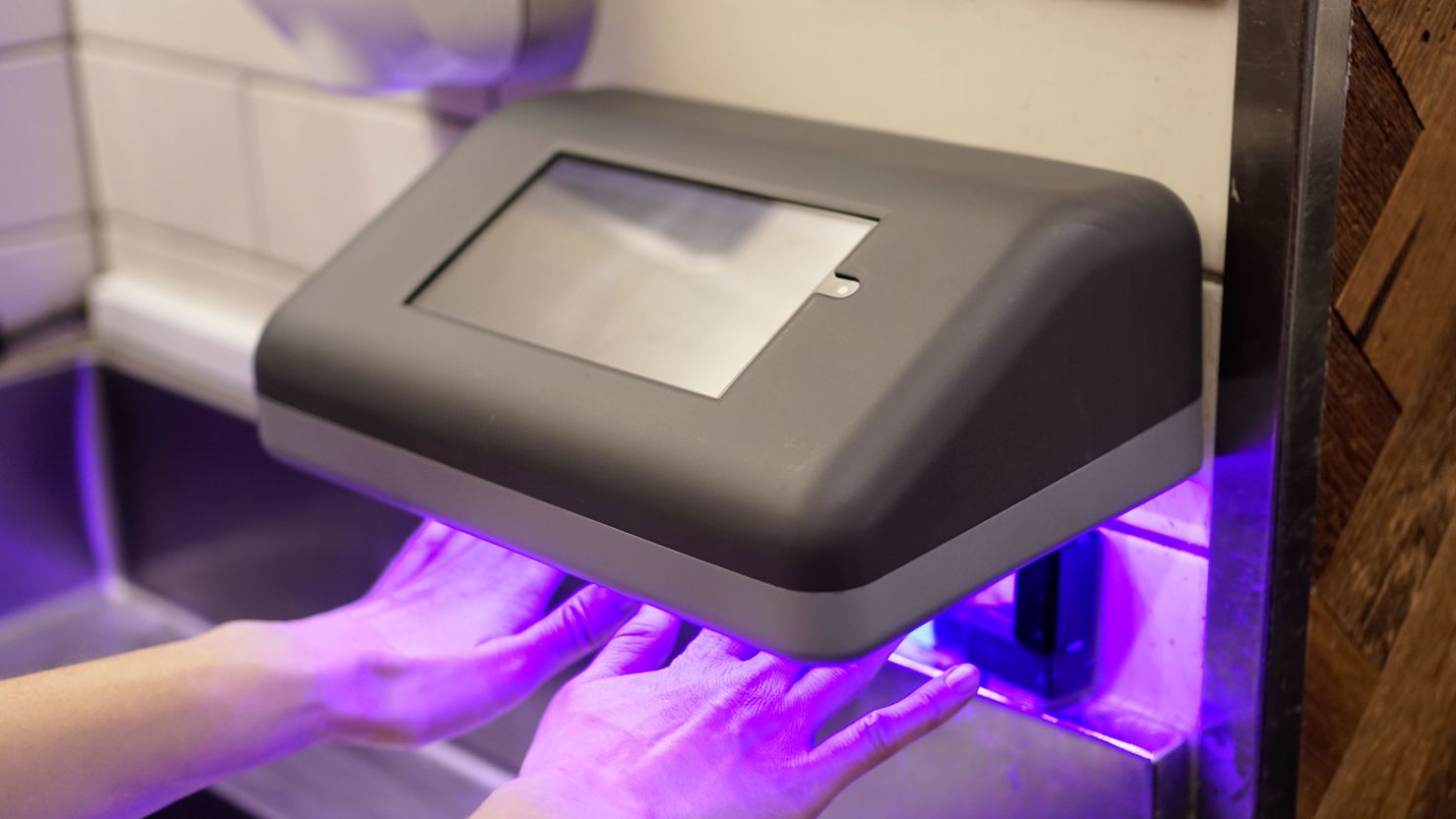
Nadya Peek / CC

PathSpot, a New York-based tech startup founded and led by Schindler, has introduced an innovative hand hygiene device aimed at enhancing the safety of employees and customers in food-based businesses such as restaurants, food manufacturers, and packaging plants, safeguarding them from the risks of foodborne illnesses and outbreaks.
Named the Handscanner, this device serves as a handwashing integrity verifier, already deployed in over 10,000 food service establishments worldwide, including popular franchises like Taco Bell, Arby’s, and Chopt restaurants.
Weighing less than five pounds and compact enough to fit alongside a standard handwashing station, the Handscanner employs advanced technology to swiftly assess the cleanliness of hands post-wash. Upon completing a 20-second handwash with soap and drying hands with a paper towel, employees place their hands, first palms up and then palms down, beneath the scanner for activation.
Utilizing light fluorescence spectroscopy, a non-UV LED imaging technology commonly utilized in healthcare settings, the device promptly detects any residual contaminants on the hands and wrists. This includes hard-to-reach areas like beneath fingernails and around jewelry, where microbes such as norovirus, E. coli, salmonella, Hepatitis A, Listeria, and others could potentially lurk.
An integrated screen on the device promptly notifies employees if the scan detects any contamination that may pose a risk of foodborne illness. Dutch Waanders, PathSpot’s co-founder and chief technology officer, highlights the immediate feedback, emphasizing the importance of prompt action in maintaining hand hygiene standards.
In the event of a positive detection, individuals are prompted to thoroughly rewash their hands for the recommended duration, followed by another scan to ensure cleanliness. Although the Handscanner does not provide diagnostic results, it serves as an effective tool for alerting the presence of molecules associated with pathogens causing foodborne illnesses.
Rebecca Bartles, an expert in infection prevention and control, acknowledges the potential of the PathSpot Handscanner, advocating for further research and validation to enhance its efficacy.
To prevent circumvention of the system, unique employee identification codes or RFID badges are utilized to track handwashing compliance. The system notifies management of any lapses in hand hygiene, ensuring accountability among employees. Schindler also emphasizes that wearing gloves is not a substitute for proper handwashing, as gloves can harbor contaminants and provide a false sense of security.
In summary, the PathSpot Handscanner represents a promising advancement in hand hygiene technology, offering real-time monitoring and accountability in food service environments, ultimately contributing to the prevention of foodborne illnesses.








